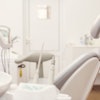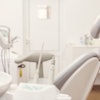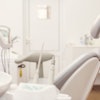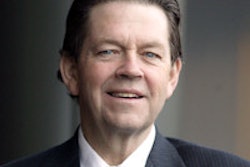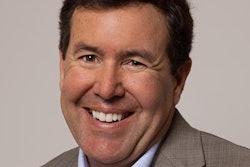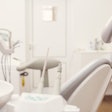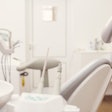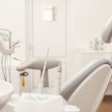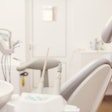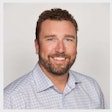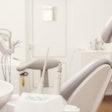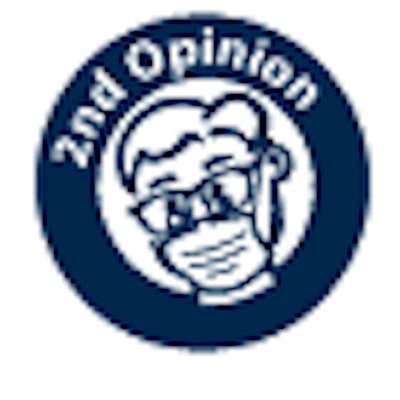
Editor's note: This op-ed column originally appeared June 5, 2012, in The Tennessean. It is reprinted with permission of Dr. John Notarianni and The Tennessean.
For most Americans, access to quality, professional dental care is considered a basic element of any thriving community. You may not always look forward to your next appointment, but it's good to know your local dentist is close by to watch over your oral health.
Unfortunately, as was highlighted in the May 21 article, "Tennessee dental health among nation's worst," there are an increasing number of communities across the U.S. where that reality is a thing of the past. By any measure, we have a critical shortage of dentists in this country. The U.S. Department of Health and Human Services estimates that there already is a shortage of 6,800 dentists in America, leaving more than 32 million people, many of them senior citizens, underserved when it comes to dental care.
And Tennessee is no exception -- almost all counties in the Chattanooga area can be considered as federally underserved dental areas with less than one dentist for every 50,000 residents. Try getting an appointment under those circumstances.
It is not surprising that a recent Pew Foundation study found dental disease in both children and adults to be our nation's largest unmet health need. When you consider that fewer dentists graduate from our nation's dental schools than are needed to replace the dentists who retire each year, coupled with an aging population that has a greater need for services, it seems as if the situation is only going to get worse.
Given the seriousness of this threat, you would expect an urgent public response. But dental care is playing a very minor role in our nation's heated healthcare debate.
Why go with a DSO?
The good news is that America's dental community is responding to this challenge with innovative, market-driven solutions. One such remedy has been the increasing number of dentists choosing to hire a dental service organization (DSO) to provide a broad range of nonclinical services, including real estate, human resources, and accounting. Not having to focus on these demanding and time-consuming administrative tasks, dentists have upward of 12 to 15 extra hours per week to see patients and deliver care -- hours that are in high demand when you consider the unmet need.
I should know: I currently practice at Aspen Dental in Knoxville and am supported by a DSO.
Our neighbors in North Carolina are currently debating this very model, and there is a great deal of rhetoric implying that contracting with a DSO somehow takes clinical decisions out of the hands of the dentist. I can tell you based on my personal experience that this is entirely untrue. Dentists practicing with the support of a DSO are no different from dentists in a traditional private practice -- all of our clinical decisions are our own, and are in no way driven by outside influence. We are all licensed by the same boards and committed to upholding the same professional standards.
Same thing in eye-care industry
There's a good parallel to this debate when we look at the eye care industry. More than 20 years ago, critics opposed to the retail model in eye care -- businesses like LensCrafters and Pearle Vision -- used many of the same arguments that we hear against DSOs today. But in hindsight, I don't think that anyone would argue that the growth of the retail eye care industry has been negative for consumers. Quite the opposite -- it has increased competition and benefited consumers, both in terms of more choices and lower prices.
The situation currently unfolding in North Carolina stands to have a negative impact on residents of the state. In fact, in a May 25 letter to the North Carolina General Assembly, the Federal Trade Commission said of pending legislation on this issue, "We are concerned that the bill may deny consumers of dental services the benefits of competition spurred by the efficiencies that DSOs can offer, including the potential for lower prices, improved access to care, and greater choice."
Certainly DSOs are not the only answer to America's dental care crisis. We also need to encourage more young people to join the profession and find ways to work with our professional societies and state boards to ease some of the restrictions that might prevent dentists from opening new practices in areas most in need of additional access to care.
Thanks to improving technology, innovative models, and outstanding professional training, most Americans have the opportunity to have the best dental care in the world. If we insist that dental care be a central part of our nation's healthcare dialogue, that's a proud legacy we can preserve and pass on to future generations.
John Notarianni, DDS, is managing clinical director at Aspen Dental in Knoxville, TN. Dr. Notarianni joined Aspen Dental in 2009 and is a member of the International Association of Dental Research, the American Dental Association (ADA), and Delta Sigma Delta (a professional dental fraternity). Dr. Notarianni is a graduate from the Indiana University School of Dentistry.
The comments and observations expressed herein do not necessarily reflect the opinions of DrBicuspid.com, nor should they be construed as an endorsement or admonishment of any particular idea, vendor, or organization.

